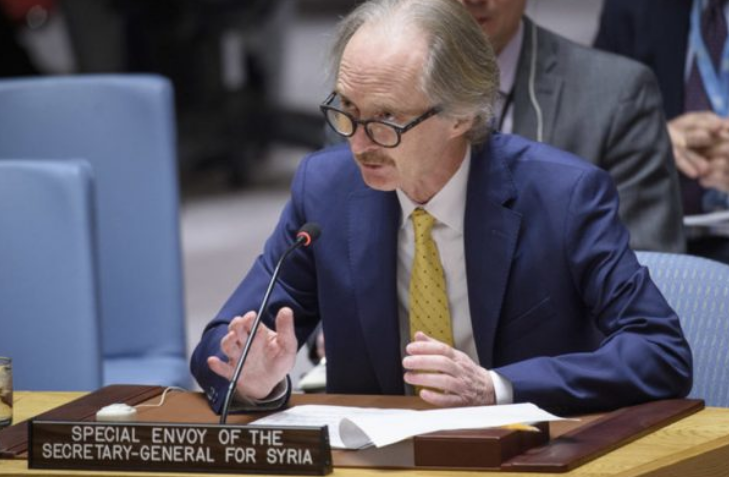New York (Web Desk): The situation in Syria has rapidly shifted, with a surge in violence creating a highly unstable and perilous environment, according to the United Nations’ (UN) Special Envoy, Geir Pedersen.
Speaking to the UN Security Council, Pedersen warned that the country was facing the risk of further fragmentation, which could lead to dire consequences for Syria’s future.
The conflict flared again on November 27, when fighting broke out between pro-government forces and opposition groups, particularly the extremist group Hay’at Tahrir al-Sham (HTS), in the western Aleppo countryside. This clash marks a sharp escalation in the ongoing civil war, which had seen a period of relative calm in recent months.
The violence, which has already resulted in civilian casualties, the displacement of tens of thousands of people, and severe damage to critical infrastructure, continues to grow.
Pedersen reported that large areas of Syria, including Aleppo, have fallen under the control of opposition groups and non-state actors. These areas, now controlled by groups such as HTS and the Syrian National Army, are home to an estimated seven million people.
As government forces regroup in Hama, they are facing mounting pressure from opposition forces who are advancing toward the city.
The fighting has escalated on both sides, with government airstrikes hitting civilian targets, including hospitals, and HTS launching drone and rocket attacks.
The situation is further complicated by developments in northeast Syria, where US-backed Syrian Democratic Forces (SDF) have taken control of villages, citing threats from the Islamic State.
Meanwhile, Israeli airstrikes have targeted locations in Damascus and along the Syrian-Lebanese border, contributing to the broader regional instability.
Pedersen emphasized two crucial points in his address. The first was the urgent need for a de-escalation of the violence, stressing that the years of conflict have shown that no side can achieve a military solution to the crisis.
The second point was the necessity of a genuine political process to provide a way forward for Syria.
He noted that while various ceasefires and military pauses had managed to contain violence to some extent in the past, these efforts were insufficient without a broader political framework.
Without such a framework, he warned, Syria would face even greater risks of division and further deterioration, a fate that none of the parties involved should seek.


